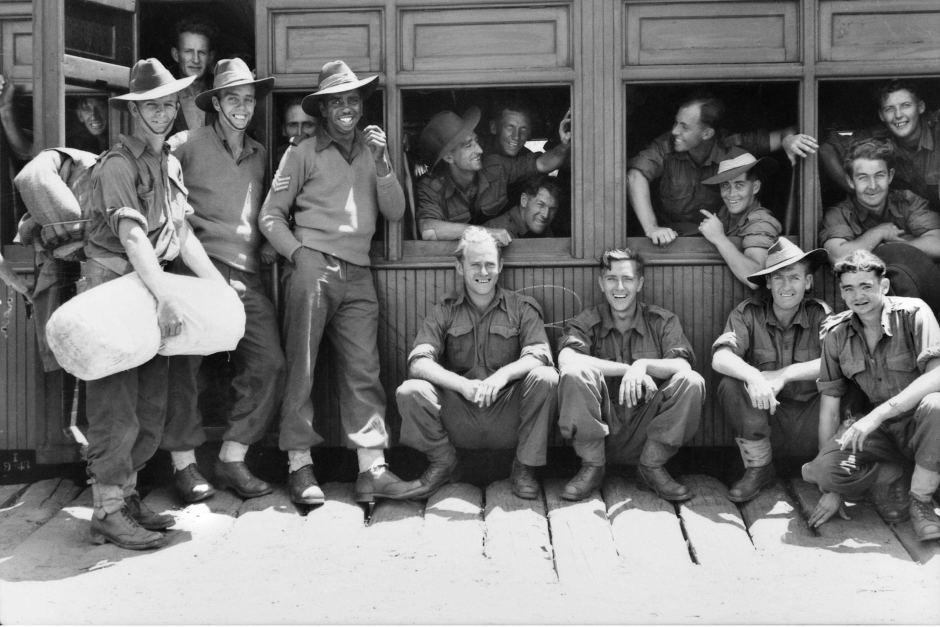Uncle Reginald Walter Saunders (Reg) was the first Aboriginal soldier to reach the rank of officer in the Australian Army in 1945.
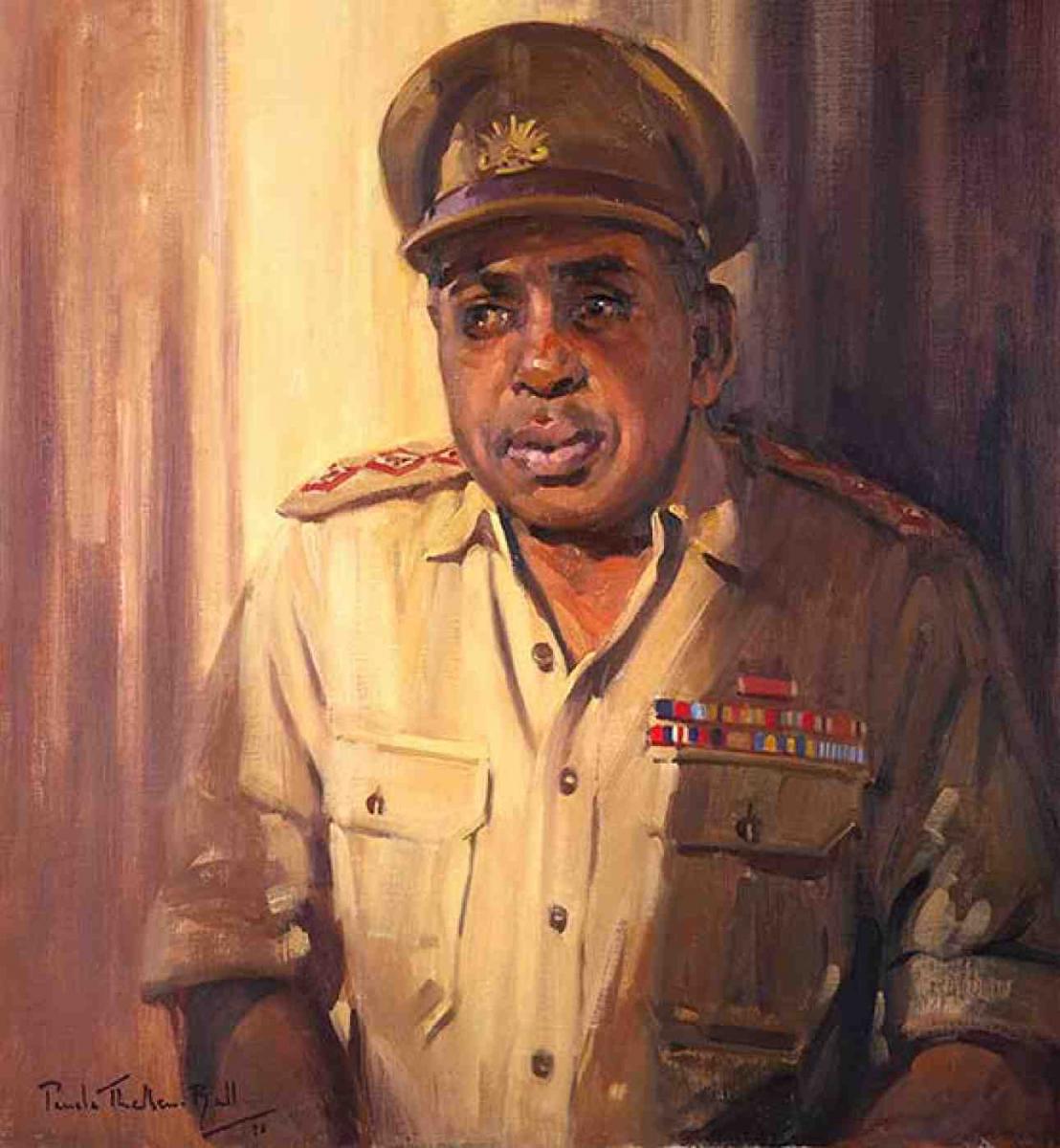
Uncle Reg was a Gunditjmara man, born in 1920 at Framlingham Aboriginal reserve, near Purnim, Victoria. He was the son of Walter Christopher George Saunders, who served in the Australian Imperial Force in World War I, and Mabel Saunders, née Arden.
As a young man, Uncle Reg worked in the timber and dairy industries. He was a keen sportsman, playing football, boxing and cricket.
He was accepted unreservedly by the men who served with him because false values do not flourish among front-line soldiers.
After the outbreak of World War II, Uncle Reg enlisted in the Army in 1940. His strong leadership meant that he was quickly appointed an acting sergeant in his training battalion. He sailed for the Middle East and joined the unit at Marsa Brega, Libya, in February 1941 as a private.
In April he was involved in the disastrous Greek campaign and his battalion was forced to withdraw. When a German bomb damaged the ship he was on, he was transferred to another vessel and put ashore on the island of Crete.
Saunders was one of a number of soldiers who refused to surrender... he avoided capture for eleven months.
In Crete, Uncle Reg saw his first serious action. On 26 May he took part in the bayonet charge that temporarily disorganised the enemy. When the allied army, of which Australia was apart, left the island, Uncle Reg’s battalion was left behind in the hasty evacuation. Uncle Reg was one of a number of soldiers who refused to surrender. Helped by sympathetic locals, he avoided capture for eleven months.
In May 1942 he escaped aboard a fishing boat to Libya He arrived back in Australia in September and in January 1943, he was promoted to acting sergeant. Tragically, his brother Harry was killed in action in Papua, in November 1942.
Uncle Reg surrounded by his mates of the 2/7th Battalion (1943).
A Special ABC Australia short documentary on Australia's First Aboriginal Officer Reg Saunders aired on Anzac Day 25.4.2014
In April 1943 Saunders travelled to Wau, New Guinea, where he rejoined his battalion to take part in another military campaign. Uncle Reg’s athleticism and skills in the bush were extremely valuable to his unit. Lieutenant Colonel Henry Guinn, his commanding officer, valued him as a leader of patrols and ambushes against the Japanese military.
In October the battalion moved to North Queensland. Lieutenant Colonel Guinn nominated Uncle Reg to be promoted to officer. Successful, he attended officer training school but his graduation was delayed after he became sick.
In 1944 in Melbourne, Uncle Reg married Dorothy Mary Banfield, who was serving in the Women’s Auxiliary Australian Air Force. He then became a lieutenant in November 1944 and was posted back to his old unit in New Guinea.
From March 1945, Uncle Reg was in command of a platoon in New Guinea. While fighting, he was hit in the knee by a bullet and was out of action for ten days.
He then returned to Australia, where he was transferred to the Reserve of Officers. After the war, he worked in various fields in Melbourne and Sydney.

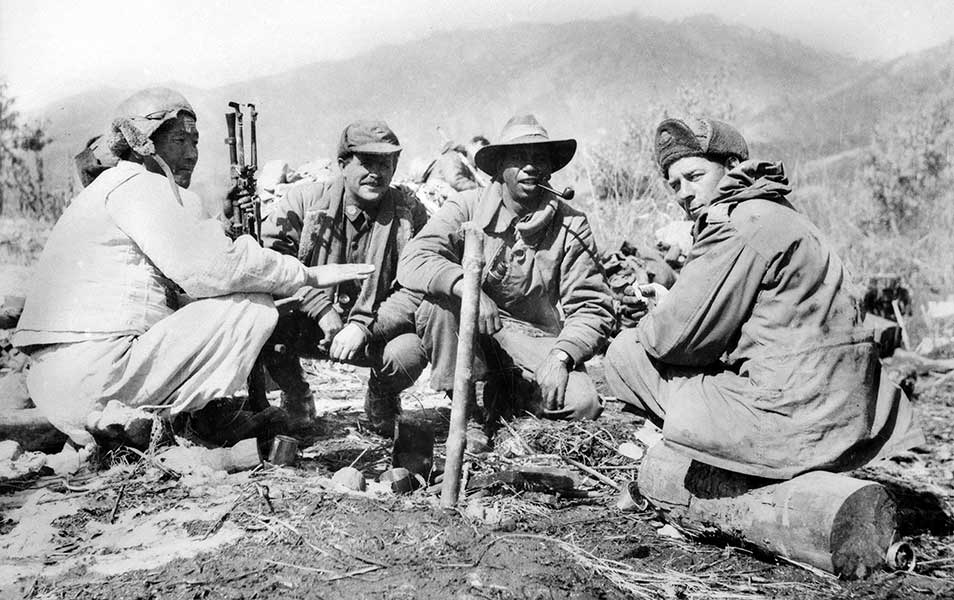
Three members of the 3rd Battalion, the Royal Australian Regiment (3RAR), confer with a North Korean interpreter (left) who is serving with the battalion - Uncle Reg is smoking a pipe.
When the Korean War began in 1950, Uncle Reg signed up to serve again. In November he joined the 3rd Battalion, Royal Australian Regiment, in Korea and next month was promoted to temporary captain. The company he commanded fought against the Chinese and North Korean forces.
Uncle Reg’s contribution to the military was significant, as he was the first Aboriginal person to reach the rank of officer and was able to break down racist assumptions about Aboriginal people through his skill and leadership.
As the first Indigenous Australian to be commissioned in the army, he did much to break down racist assumptions about his people.
Despite his sacrifices for his country, Uncle Reg and his family experienced racism and discrimination back in Australia. For example, he was not granted any land in the Soldier Settlement Scheme, unlike his non-Aboriginal counterparts. Below is an article from the Adelaide newspaper 'News' dated Saturday 18th November 1950.

Despite this, Uncle Reg was committed to serving his country. After the Korean War, he continued to work for the Army, including training recruits. His key skill however, had been leading men in battle and it was noted that soldiers loved serving under him. He has also been called “easy going,” “proud,” and “tolerant,” with a good sense of humour.

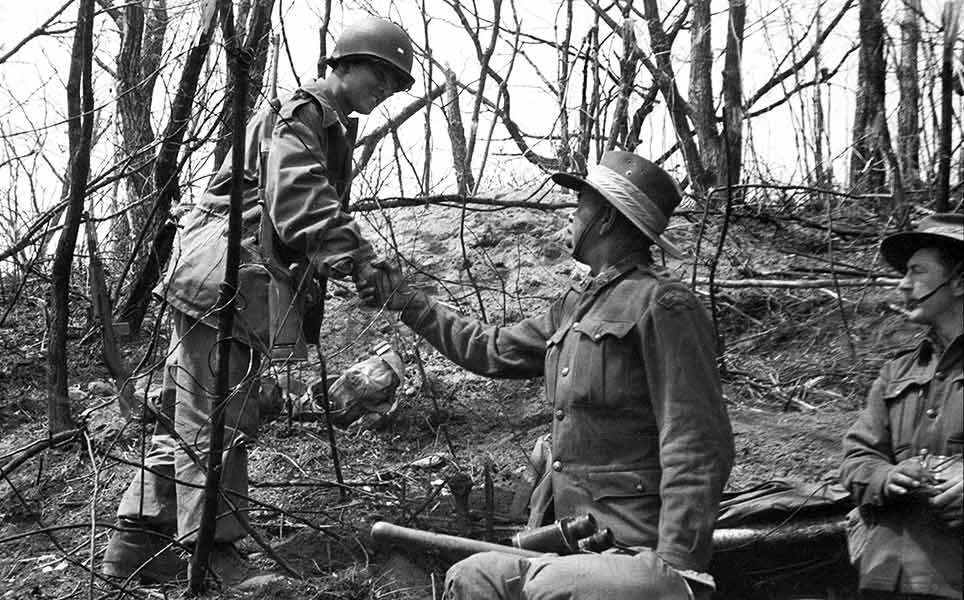
17 April 1951. Uncle Reg (right) shakes hands with a member of K Company, 6th Republic of Korea (ROK) Infantry Division, which has just arrived on Salmon to relieve 3RAR.
In 1969 he began work as a liaison officer in the Office (later Department) of Aboriginal Affairs in Canberra. He was honoured in 1971 for his work in establishing communications between the government and Aboriginal communities. In 1985 he joined the council of the Australian War Memorial, Canberra.
He passed away in 1990 and was survived by his 10 children. In 1992 the RSL established a scholarship in his name for Aboriginal and Torres Strait Islander men and women. His skills, leadership and bravery continue to be remembered in his Community and the military.
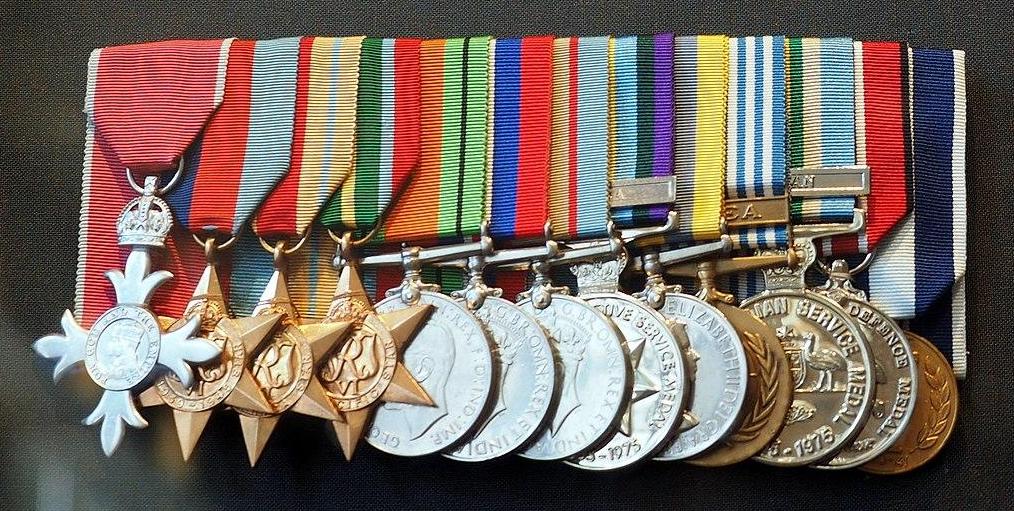
Uncle Reg's medals on display at the Australian War Memorial in 2017
Sources/Further Reading:
- Darryl McIntyre, 'Saunders, Reginald Walter (Reg) (1920–1990)', Australian Dictionary of Biography, National Centre of Biography, Australian National University, http://adb.anu.edu.au/biography/saunders-reginald-walter-reg-15909/text27110, published first in hardcopy 2012, accessed online 22 March 2018.
- Captain Reg Saunders - Department of Veteran's Affairs
- ABC1 Australia's First Aboriginal Officer Reg Saunders 25.4.2014
- Reg Saunders: An Indigenous War Hero - The True Story of Australia's First Indigenous Commissioned Army Officer (National Library of Australia)
- Officer's Wife lives in Squalor - 'News' Sat 18 November 1950, page 15
- Reginald Walter "Reg" Saunders - Wikipedia
- Reg Saunders : An Indigenous War Hero (Graphic Novel)
- Saunders, Reginald Walter (Reg) (1920–1990)
- Captain Reginald Walter 'Reg' Saunders - Australian War Memorial

